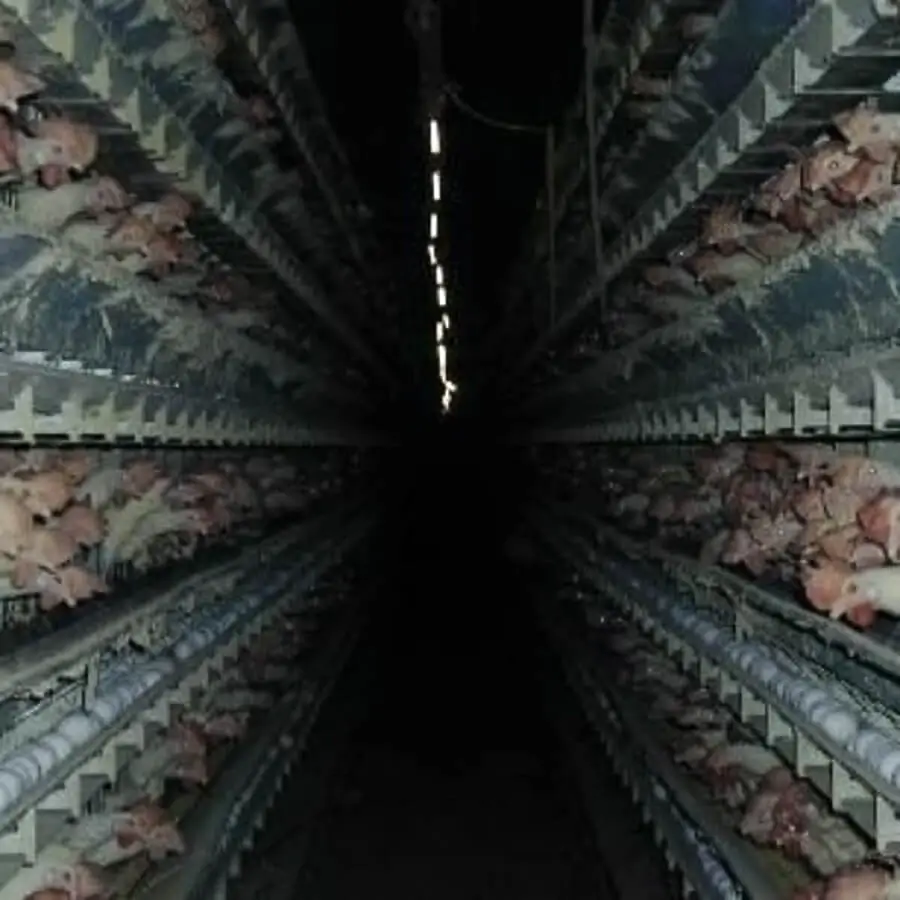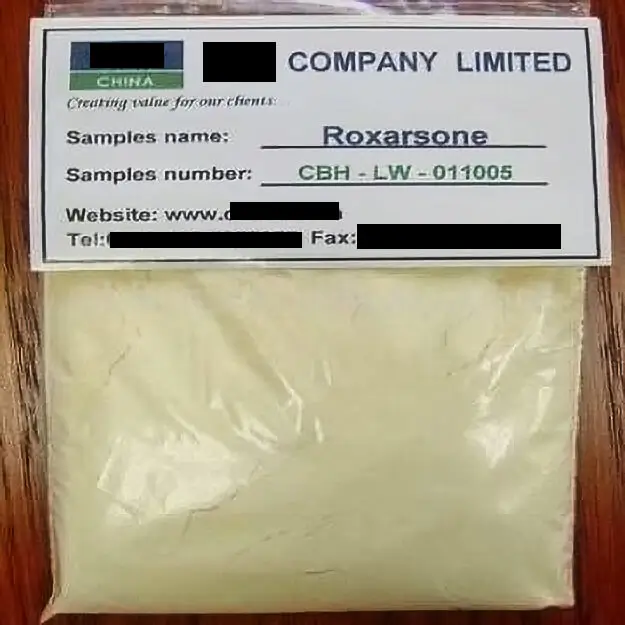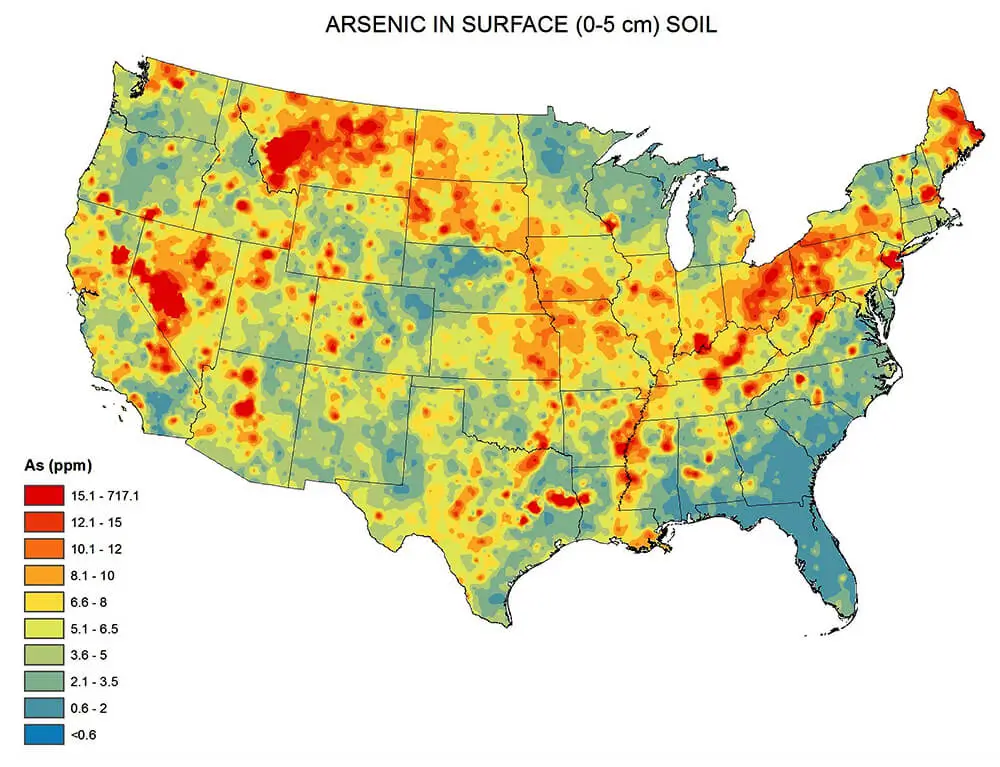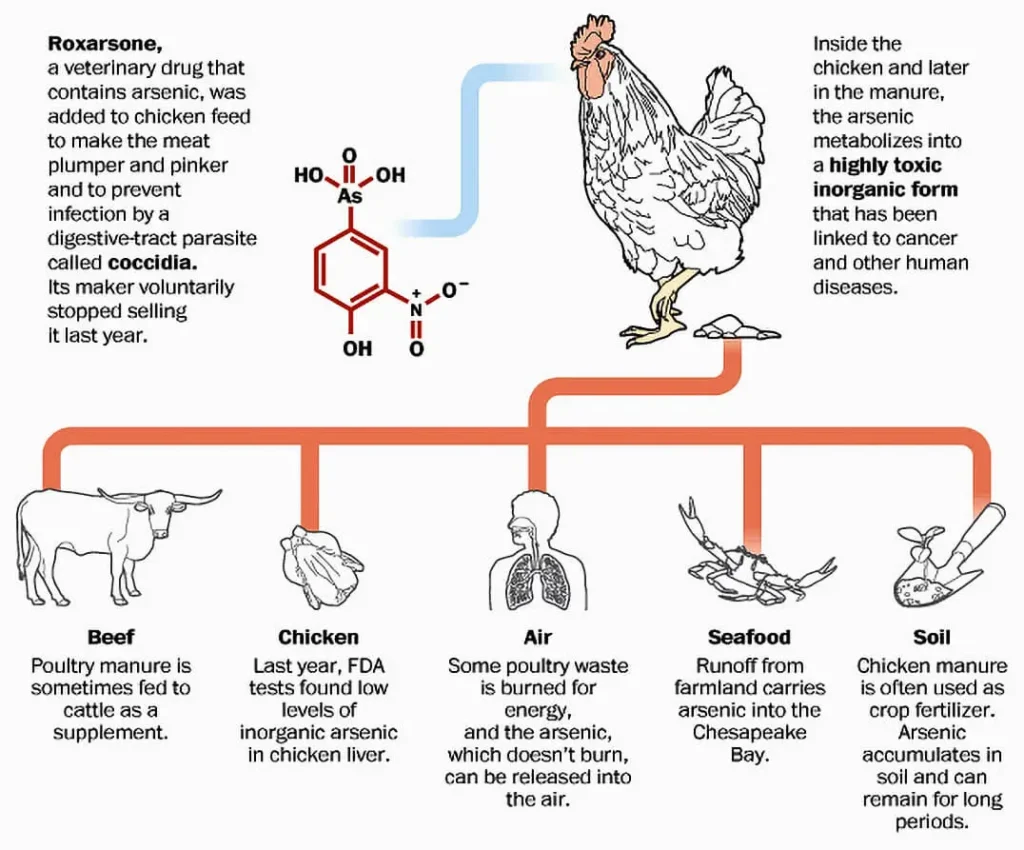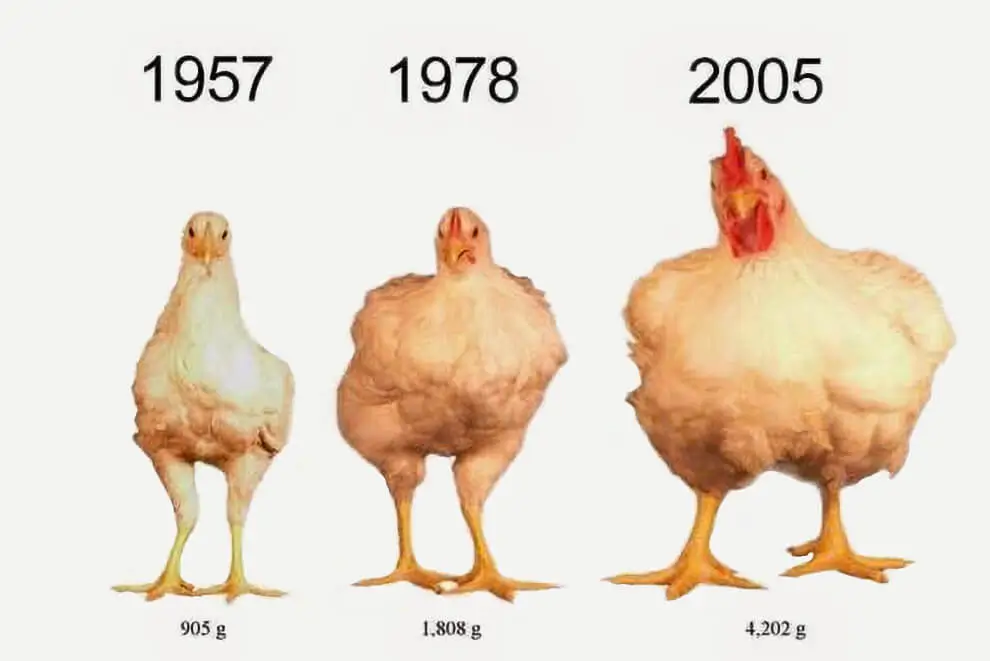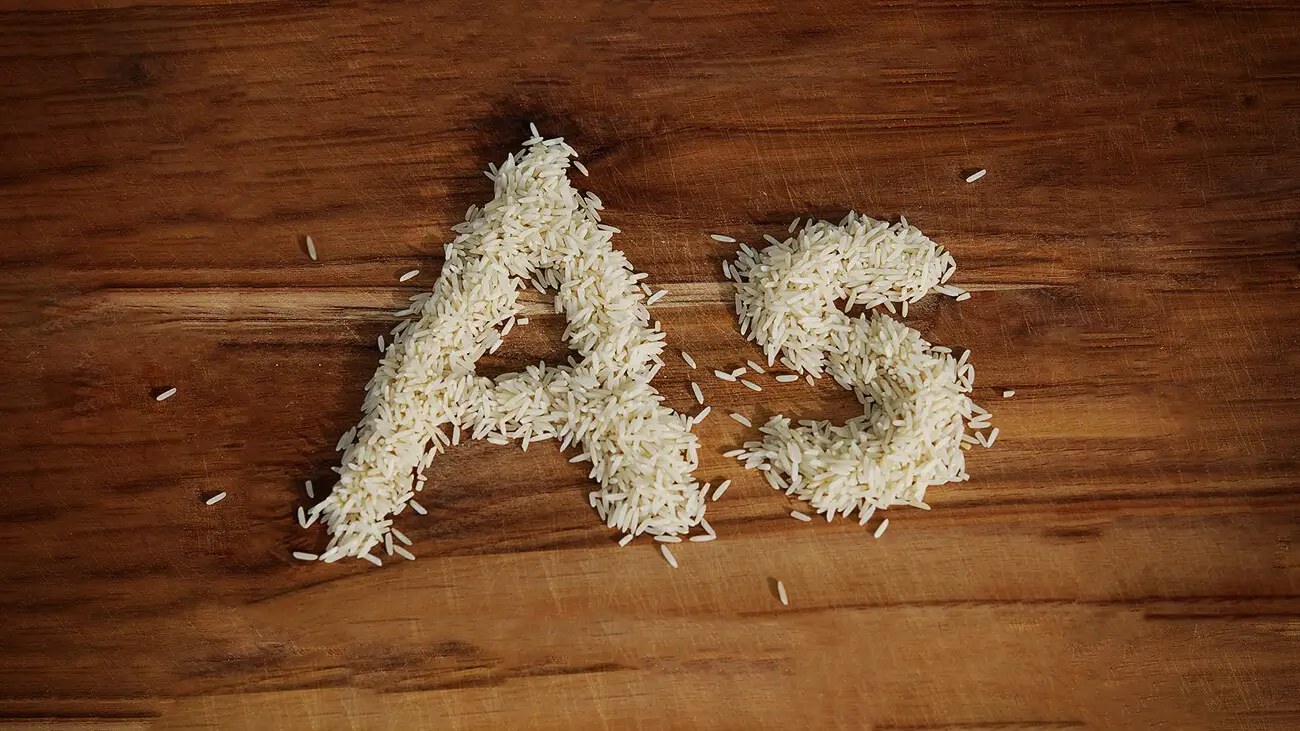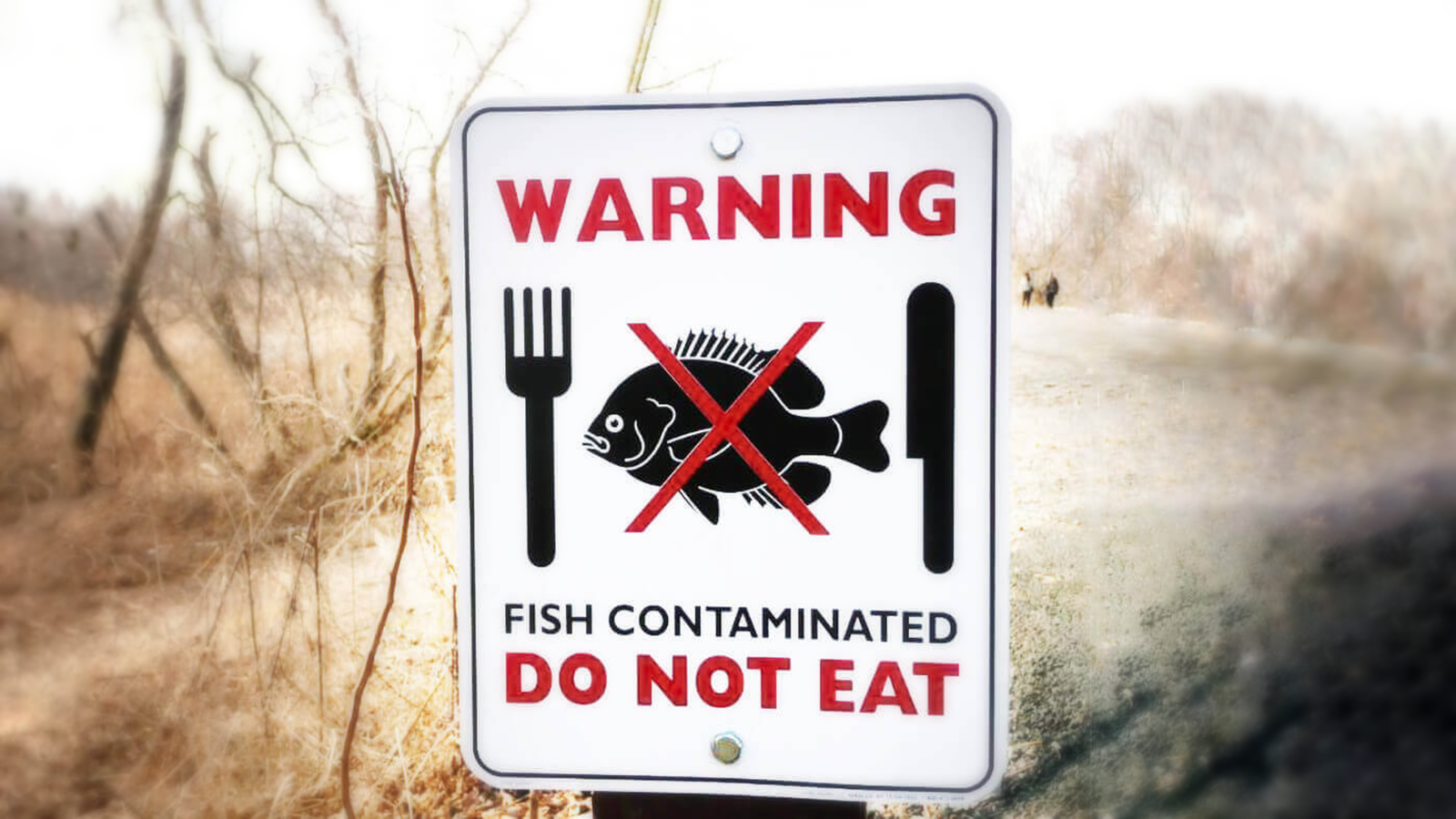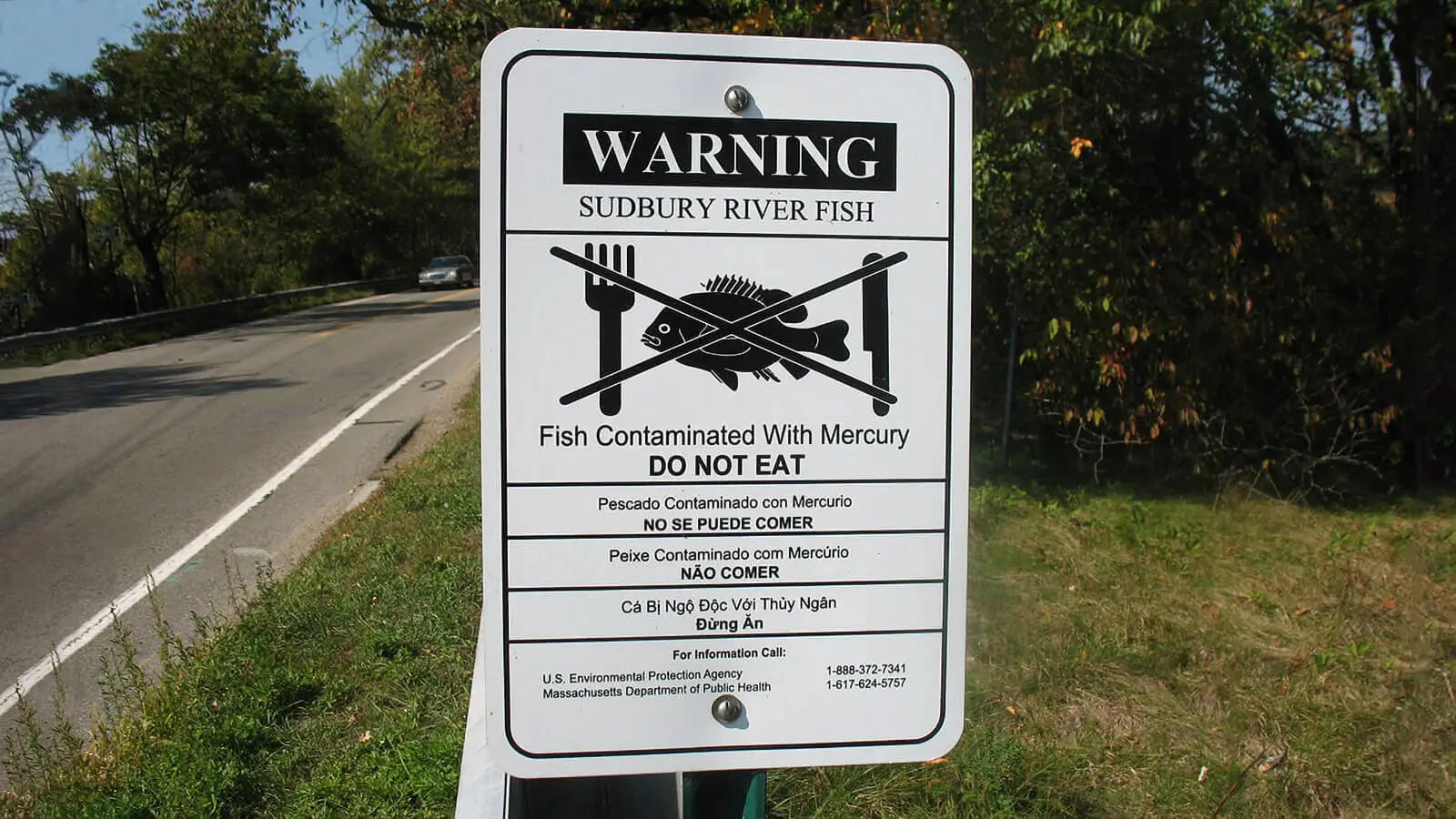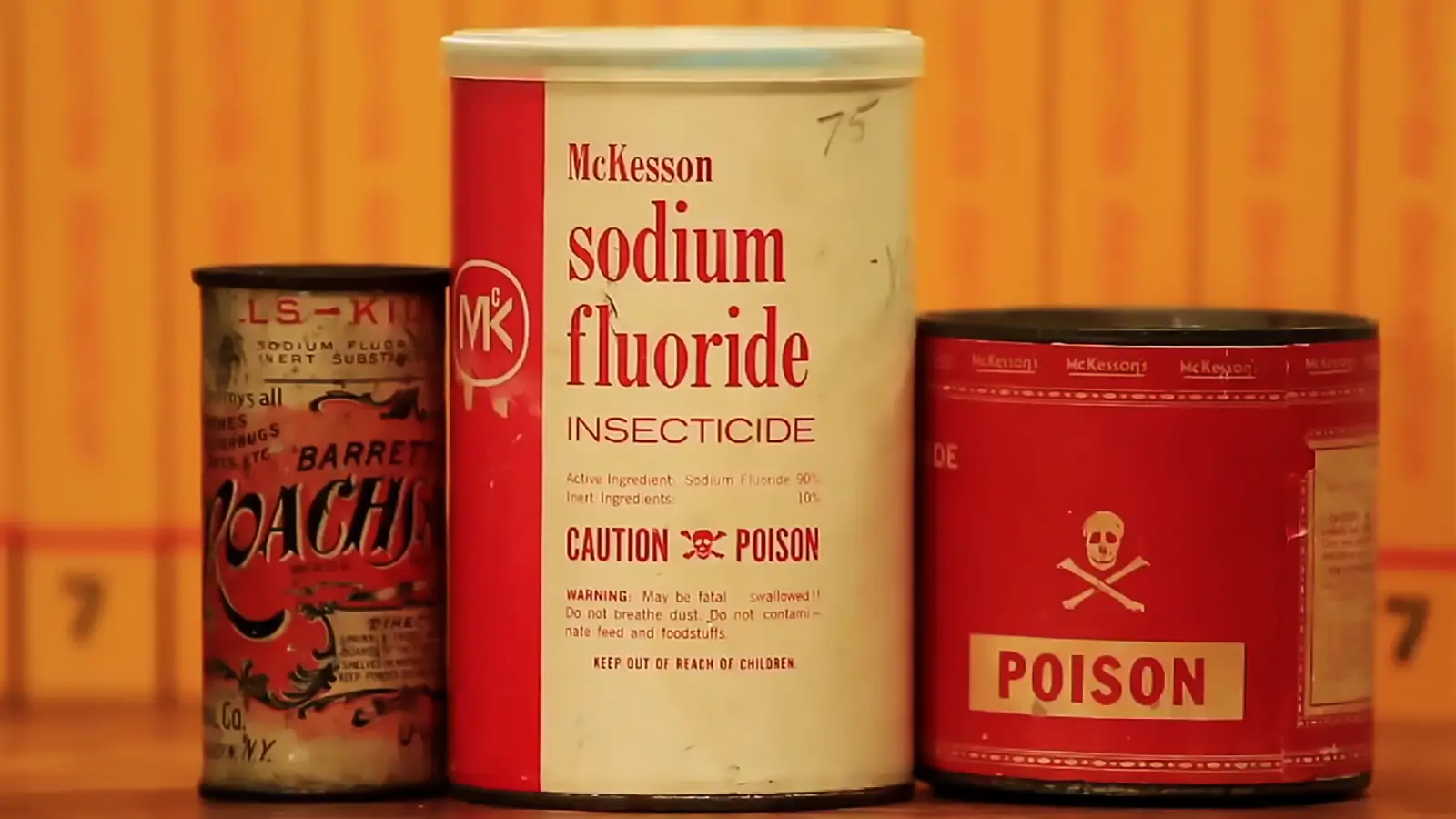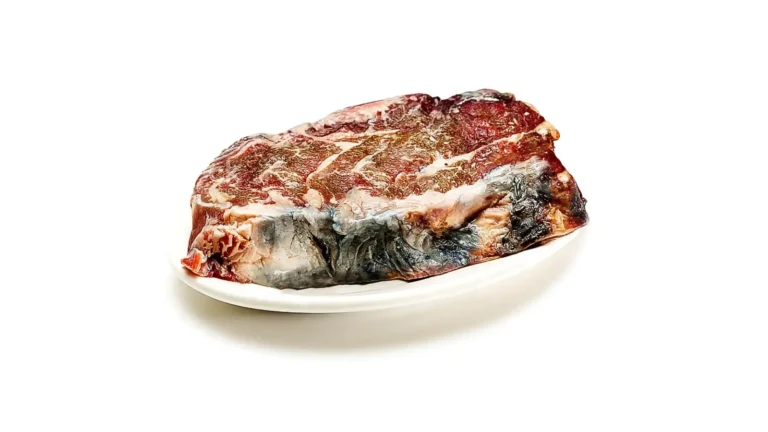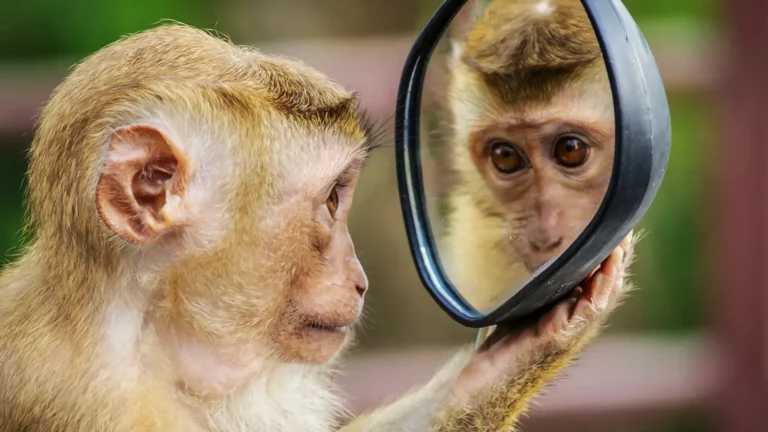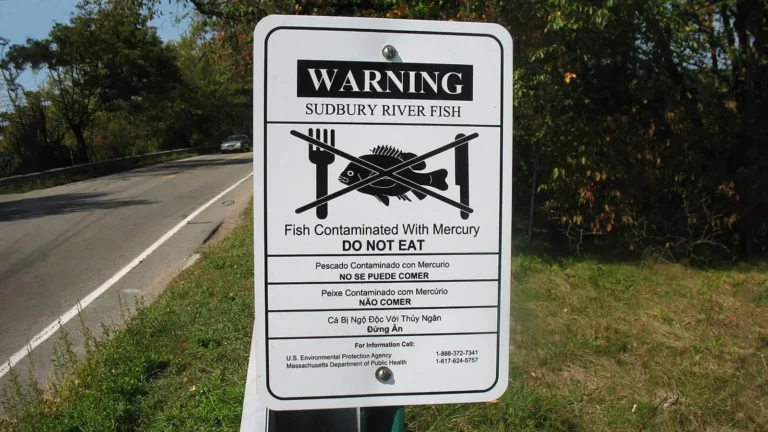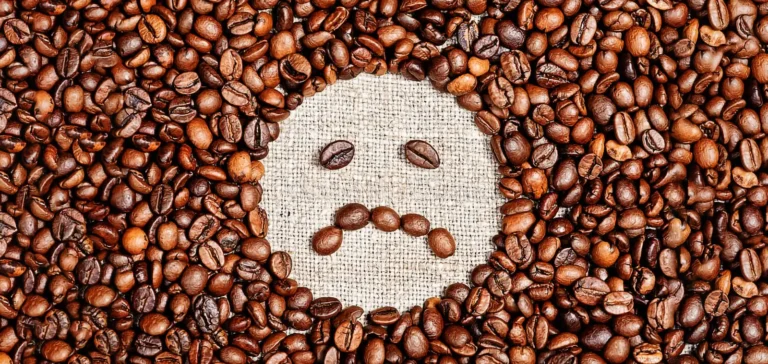En EE.UU., más de las tres cuartas partes de la exposición al arsénico procede de productos animales y, sobre todo, del pollo, más que de la ternera, el cerdo, los perritos calientes, los huevos y la leche.
Milos Pokimica
Escrito por: Milos Pokimica
Revisado Médicamente Por: Dr. Xiùying Wáng, M.D.
Actualizado el 9 de junio de 2023La mayor parte de la exposición al arsénico en la dieta estadounidense no procede del arroz, porque en la dieta estadounidense el arroz no es un alimento básico como en Asia oriental. En EE.UU., más de las tres cuartas partes de la exposición al arsénico procede de productos animales y, sobre todo, del pollo.
La primera mención del arsénico en la historia fue en la corte del emperador romano Nerón por el médico griego Dioscórides en el siglo I. El arsénico es una sustancia peligrosa porque carece de color, sabor u olor. Es abundante en la naturaleza y está al alcance de todas las clases sociales. Como se puede mezclar con bebidas o alimentos y no deja sabor ni olor, es una sustancia ideal para usos siniestros. Los síntomas de la intoxicación por arsénico también son difíciles de detectar porque imitan los de la intoxicación alimentaria habitual y otros trastornos comunes. En grandes dosis, provoca vómitos, diarrea, calambres abdominales violentos y la muerte. En caso de intoxicación crónica en pequeñas dosis, se produciría confusión, pérdida de fuerza y parálisis. Con el tiempo, el trióxido de arsénico (As2O3), conocido como arsénico blanco, se utilizó comúnmente para envenenar a la gente con una dosis letal del tamaño de un guisante. El Papa Alejandro VI y su hijo César eran, por ejemplo, conocidos envenenadores de arsénico. El Papa Alejandro VI nombraba cardenales y, con los privilegios y el poder que les otorgaba la Iglesia, se les animaba a hacer lo que fuera para aumentar su riqueza personal. Luego, en algún momento, fueron invitados a comer con los Borgia, lo que resultó en la muerte del cardenal. En ese caso, según la ley eclesiástica, la propiedad de los bienes del cardenal volvía a la Iglesia o, en otras palabras, al Papa Alejandro VI, su verdugo. Con su colorida y larga historia, el arsénico no es una sustancia que la gente quiera en su comida.
Si analizamos la contaminación por arsénico desde el punto de vista geográfico, Estados Unidos es el lugar más contaminado del mundo. Esto se debe a que el arsénico se utiliza en la industria agrícola desde hace décadas.
En las granjas avícolas modernas hay demasiados pollos concentrados en poco espacio. La mayoría de ellos pasan toda su vida sin apenas moverse. En este tipo de condiciones, el estiércol de los pollos es un problema para la creación de brotes de enfermedades infecciosas. La gallina típica produce aproximadamente 90 libras de estiércol. En las grandes granjas, puede haber cientos de miles de pollos en una sola instalación. El suelo de estas naves está cubierto de heces, cáscaras de soja, éteres, cacahuetes y arroz. Para detener las infecciones y prevenir enfermedades y promover el crecimiento, la industria avícola ha utilizado organoarsénicos, como el ácido 3-nitro-4-hidroxifenilarsónico (RoxarsoneROX).
Debido a la acumulación continuada en el suelo, las concentraciones de arsénico en el suelo procedentes de aplicaciones a largo plazo de camas de aves de corral pueden superar las normas de nivel de seguridad.. Estos compuestos se filtrarían y contaminarían las aguas subterráneas que, en algunos casos, se utilizan incluso para el consumo humano. Lo que es mucho peor es que la gallinaza se utiliza para su aplicación en terrenos agrícolas y para fertilizar estanques piscícolas.
En EE.UU., alrededor del 90% de las camas de aves de corral llenas de arsénico se utilizan en campos agrícolas como fertilizante.
Luego, parte de ese arsénico será absorbido por los cultivos que crezcan en ese campo envenenado con arsénico. La yacija de las aves de corral también se ha utilizado como pienso para el ganado vacuno. Se utiliza como material de partida en la creación de compost para hongos. Durante años, la concentración de arsénico en los champiñones ha rivalizado con la del arroz. El último estudio mostró que ahora los champiñones tienen una media de alrededor de la mitad que el arroz. Se calcula que en EE.UU. se vierten al medio ambiente alrededor de medio millón de libras de arsénico puro al año.
La FDA vigila desde hace décadas el contenido de arsénico en la dieta de los estadounidenses. La mayor concentración se encuentra en el pescado de piscifactoría, con 1,14 ppm. Los peces se alimentan con estiércol de pollo. Incluso si evita el pescado, se encontraron concentraciones más bajas en la mayoría de los alimentos analizados. El pollo tiene 0,08 ppm y el arroz 0,16 ppm. El arroz es la principal fuente de exposición al arsénico en la dieta no marinera. Los toxicólogos de la FDA sostienen que la ingesta diaria media de arsénico no supone ningún peligro para el consumidor. Yo no estoy de acuerdo.
El uso de pesticidas con arsénico en EE.UU. también ha sido una práctica común en el cultivo del algodón, por lo que estados como Mississippi y Arkansas tienen un mayor nivel de contaminación. Los pesticidas con arsénico están ahora prohibidos, pero toda esa contaminación sigue ahí, de modo que el arroz californiano, por ejemplo, tiene niveles de arsénico un 41% más bajos que el de Misisipi. La concentración de arsénico en el suelo puede llegar a afectar a la propia planta de arroz. Existe un trastorno por toxicidad del arsénico en el arroz llamado cabeza recta. Los síntomas van desde un aumento de los flósculos en blanco hasta la pérdida total del grano. Para combatirlo, la industria creó variedades resistentes al arsénico. Ahora el arroz puede tomar mucho más de lo que antes era naturalmente posible sin tener ningún problema. Lo único que queda para hacer frente a esta situación es que la industria cree ahora seres humanos resistentes al arsénico. La misma historia que con el vino. Décadas de uso de pesticidas con arsénico acumularon arsénico en el suelo, por lo que también hay una presencia constante y omnipresente en el vino estadounidense.
La situación hoy sería mucho peor si no fuera por un estudiante de bioestadística. It all started back in 2000 when a biostatistics student came to the USDA in search of a project for his master’s degree. What he was found is that the arsenic level in chicken was three times as in the other meats. Although this was an unexpected finding, it was soon explained to him that in the USA antibiotics containing arsenic are fed to the poultry to promote growth, improve pigmentation, and prevent diseases. FDA approved the first drug Roxarsone in 1944.
So while arsenic-containing drugs were in wide-scale use since the 1940’s the recognition of the exposure was only accrued after statistical analysis of the data. En otras palabras, la FDA no hizo nada deliberadamente. The student did his master’s publication. After that, the study was published in 2004 and expanded in 2006.
Debido a que el tipo de arsénico utilizado es en forma orgánica, y no en la forma inorgánica tóxica que se hizo tristemente célebre en Arsenic and Old Lace, la FDA aprobó estos medicamentos como seguros. Esto puede parecerle lógico, y me gustaría que dejara de leer y reflexionara sobre ello. ¿Cómo es posible que la FDA apruebe durante 70 años medicamentos que no son seguros? Si el arsénico utilizado se encuentra en su forma orgánica no tóxica, ¿cuál es el problema? ¿por qué la FDA pondría en peligro al pueblo americano? ¿Saben lo que hacen y quién manipula a quién aquí? Envenenar a los niños con concentraciones de arsénico 300 veces superiores a las permitidas, ¿para qué? Beneficios. Sin la aprobación del gobierno, no puede pasar nada.
Lo que ocurre, en este caso, es lo siguiente. Cuando se cocina el arsénico orgánico, la cocción altera el perfil del arsénico en arsenito y arseniato. Además, los microbios del estiércol de pollo también alteran el arsénico en forma inorgánica (Huang y otros, 2014). Se demostró que más de 96% de Roxarsona añadida a los piensos para pollos se degradaba y se convertía en arsenito y otras especies de As desconocidas. Las raíces de los vegetales podían absorber ambas formas de arseniato y arsenito, pero sólo el arsenito era transportado hasta los brotes. Este estudio demostró que las plantas absorben el As inorgánico tóxico. El transporte de arsénico es el siguiente Roxarsona en piensos ' animales ' estiércol animal ' suelo ' cultivo.
Por todo ello "conocimiento"se presentó en el Congreso la Ley de Aves de Corral Libres de Veneno de 2009. Luego otra vez la Ley de Aves de Corral Libres de Veneno de 2011, luego otra vez todo esto era sólo una mentira gubernamental. Como resultado, en 2013 diferentes grupos del movimiento ecologista, la agricultura, la seguridad alimentaria y la salud pública se unieron y presentaron una demanda conjunta contra la FDA obligándola a responder.
En 2015, para evitar el conocimiento público de todo el sistema corrupto de la FDA, se vio obligada a retirar la aprobación del último de los medicamentos que contenían arsénico manteniendo esta historia lo más silenciosa posible. La mala noticia para la industria es que sin la Roxarsona la carne de pollo perderá su atractivo color rosa. Otra cosa importante que mencionar. El estiércol de pollo se utiliza para la producción de abono orgánico. Se puede compostar y convertir en oro negro. El arsénico seguía ahí hasta 2016.
Referencias:
- Huang, L., Yao, L., He, Z., Zhou, C., Li, G., Yang, B., & Deng, X. (2014). Roxarsone and its metabolites in chicken manure significantly enhance the uptake of As species by vegetables. Chemosphere, 100, 57-62. https://doi.org/10.1016/j.chemosphere.2013.12.074
Contenidos Relacionados
¿Tienes alguna duda acerca de la nutrición y la salud?
Me encantaría saber de usted y responderlas en mi próxima publicación. Agradezco sus aportes y opiniones y espero tener noticias suyas pronto. También te invito a síguenos en Facebook, Instagram y Pinterest para más contenidos sobre dieta, nutrición y salud. Puedes dejar un comentario allí y conectar con otros entusiastas de la salud, compartir tus consejos y experiencias, y recibir apoyo y ánimo de nuestro equipo y nuestra comunidad.
Espero que este post le haya resultado informativo y ameno y que esté preparado para aplicar los conocimientos adquiridos. Si le ha resultado útil, por favor compártelo con tus amigos y familiares que también podrían beneficiarse de ella. Nunca se sabe quién puede necesitar orientación y apoyo en su camino hacia la salud.
– También Te Puede Interesar –

Aprenda Sobre Nutricion
Milos Pokimica es doctor en medicina natural, nutricionista clínico, escritor sobre salud médica y nutrición y asesor en ciencias de la nutrición. Autor de la serie de libros Go Vegan? Revisión de la Ciencia, también dirige el sitio web sobre salud natural GoVeganWay.com.
Descargo De Responsabilidad Médica
GoVeganWay.com le ofrece reseñas de las últimas investigaciones relacionadas con la nutrición y la salud. La información proporcionada representa la opinión personal del autor y no pretende ni implica sustituir el asesoramiento, diagnóstico o tratamiento médico profesional. La información proporcionada tiene fines informativos únicamente y no pretende sustituir la consulta, el diagnóstico y/o el tratamiento médico de un médico o proveedor de atención médica calificado.NUNCA ignore el CONSEJO MÉDICO PROFESIONAL O RETRASAR la BÚSQUEDA de TRATAMIENTO MÉDICO a CAUSA DE ALGO QUE HAYA LEÍDO EN O accesibles a TRAVÉS de GoVeganWay.com
NUNCA APLICAR CUALQUIER cambio de ESTILO de vida O CAMBIOS EN su totalidad COMO UNA CONSECUENCIA DE ALGO QUE HA LEÍDO EN GoVeganWay.com ANTES de CONSULTAR con LICENCIA PROFESIONAL MÉDICO.
En el caso de una emergencia médica, llame a un médico o al 911 inmediatamente. GoVeganWay.com no se recomienda ni aprueba ninguna de los grupos, las organizaciones, las pruebas, los médicos, productos, procedimientos, opiniones u otra información que pueda ser mencionado en el interior.
Selecciones del editor –
Milos Pokimica es doctor en medicina natural, nutricionista clínico, escritor sobre salud médica y nutrición y asesor en ciencias de la nutrición. Autor de la serie de libros Go Vegan? Revisión de la Ciencia, también dirige el sitio web sobre salud natural GoVeganWay.com.
Últimos artículos -
Planta De Noticias Basado En
-
Texas Has Become The Seventh US State To Ban Cultivated Meat Sales
on junio 30, 2025
-
Vegan Feta And Corn Salad
on junio 30, 2025
-
Sunflower Meal Is A ‘Promising’ New Protein Base For Meat Alternatives, Says Study
on junio 30, 2025
-
This Is What They Eat In Okinawa To Live Longer
on junio 30, 2025
-
Where Do Vegans Get Their Protein? The Ultimate 2025 Response
on junio 29, 2025
-
Saffron Green Bean Rice
on junio 29, 2025
-
Tomato Choka Salad With Chickpea Tofu
on junio 29, 2025
Top Noticias De Salud — ScienceDaily
- Scientists just found a sugar switch that protects your brain from Alzheimer’son junio 30, 2025
Scientists have uncovered a surprising sugar-related mechanism inside brain cells that could transform how we fight Alzheimer’s and other dementias. It turns out neurons don’t just store sugar for fuel—they reroute it to power antioxidant defenses, but only if an enzyme called GlyP is active. When this sugar-clearing system is blocked, toxic tau protein builds up and accelerates brain degeneration.
- This AI tracks lung tumors as you breathe — and it might save liveson junio 30, 2025
An AI system called iSeg is reshaping radiation oncology by automatically outlining lung tumors in 3D as they shift with each breath. Trained on scans from nine hospitals, the tool matched expert clinicians, flagged cancer zones some missed, and could speed up treatment planning while reducing deadly oversights.
- Ancient DNA reveals leprosy hit the Americas long before colonizationon junio 30, 2025
Leprosy’s tale stretches from 5,000-year-old skeletons in Eurasia to a startling 4,000-year-old case in Chile, revealing that the rare strain Mycobacterium lepromatosis haunted the Americas millennia before Europeans arrived. Armed with cutting-edge ancient-DNA sleuthing, scientists have pieced together remarkably well-preserved genomes that challenge the idea of leprosy as purely a colonial import and hint that the disease may have homegrown American roots awaiting confirmation by future […]
- Scientists discover ‘off switch’ enzyme that could stop heart disease and diabeteson junio 30, 2025
Researchers at UT Arlington have discovered a key enzyme, IDO1, that when blocked, helps immune cells regain their ability to properly process cholesterol—something that breaks down during inflammation. This breakthrough could offer a powerful new way to fight heart disease, diabetes, cancer, and more. By “turning off” this enzyme, the team restored cholesterol absorption in macrophages, potentially stopping disease at the source. Even more promising, they found a second enzyme, NOS, that […]
- Fire smoke exposure leaves toxic metals and lasting immune changeson junio 30, 2025
Smoke from wildfires and structural fires doesn t just irritate lungs it actually changes your immune system. Harvard scientists found that even healthy people exposed to smoke showed signs of immune system activation, genetic changes tied to allergies, and even toxic metals inside their immune cells.
- The gene that hijacks fear: How PTEN rewires the brain’s anxiety circuiton junio 29, 2025
Deleting a gene called PTEN in certain brain cells disrupts the brain’s fear circuitry and triggers anxiety-like behavior in mice — key traits seen in autism. Researchers mapped how this genetic tweak throws off the brain’s delicate balance of excitation and inhibition in the amygdala, offering deep insights into how one gene can drive specific ASD symptoms.
- Brain scan breakthrough reveals why Parkinson’s drugs don’t always workon junio 29, 2025
Researchers are using an advanced brain imaging method called MEG to understand why Parkinson’s drug levodopa doesn’t work equally well for everyone. By mapping patients’ brain signals before and after taking the drug, they discovered that it sometimes activates the wrong brain regions, dampening its helpful effects. This breakthrough could pave the way for personalized treatment strategies, ensuring patients receive medications that target the right areas of their brain more effectively.
PubMed, #Dieta vegana –
- Micronutrient intake and nutritional status in 16-to-24-year-olds adhering to vegan, lacto-ovo-vegetarian, pescatarian or omnivorous diets in Swedenon junio 26, 2025
CONCLUSION: Youth, regardless of dietary practice, need support to ensure adequate micronutrient intakes, particularly for vitamin D and selenium. Further research is required to evaluate iodine nutrition in Swedish youth.
- Dietary Patterns and Sustainable Lifestyles: A Multicenter Study from Latin America and Spainon junio 26, 2025
Food systems interact through multiple dimensions including food security, nutrition, and planetary health. This study aims to associate different dietary patterns with sustainable lifestyles in Latin America and Spain. This was an observational, analytical, multicenter, cross-sectional survey study, with a total of 6412 participants. A self-administered questionnaire was developed in an online format in the Google Docs interface. The questionnaire was divided into sections: (1) […]
- Integrating comparative genomics and risk classification by assessing virulence, antimicrobial resistance, and plasmid spread in microbial communities with gSpreadCompon junio 26, 2025
CONCLUSIONS: The gSpreadComp workflow aims to facilitate hypothesis generation for targeted experimental validations by the identification of concerning resistant hotspots in complex microbial datasets. Our study raises attention to a more thorough study of the critical role of diet in microbial community dynamics and the spread of AMR. This research underscores the importance of integrating genomic data into public health strategies to combat AMR. The gSpreadComp workflow is available at…
- Validation and adaptation of a Turkish version of the dietarian identity questionnaireon junio 25, 2025
Dietarian identity reflects an individual’s cognitive, emotional, and behavioral orientation toward the consumption or avoidance of animal-based foods, including red meat, poultry, fish, eggs, and dairy. This study aimed to adapt and validate the Dietarian Identity Questionnaire (DIQ) for Turkish-speaking populations by establishing its cultural and linguistic suitability and examining dietarian identity profiles among different dietary patterns. The DIQ was adapted into Turkish and […]
- Planting Rights and Feeding Freedom: Navigating the Right to a Vegan Diet in Hospitals and Prisonson junio 20, 2025
The legal recognition of veganism highlights the evolving landscape of dietary choices and their status under human rights law. This paper examines the legal status of vegan diets under the European Convention on Human Rights (ECHR), focusing on public institutions such as prisons and hospitals. By analyzing the first relevant cases before the European Court of Human Rights, it explores the protection of vegan diets under Articles 9 (freedom of thought, conscience, and religion) and 14…
Publicaciones aleatorias –
Publicaciones destacadas -

La última versión desde PubMed, #Dieta basada en plantas –
- Adherence to Mediterranean Diet and Implications for Cardiovascular Risk Preventionpor Giulia Frank on junio 27, 2025
Background/Objectives:Arterial hypertension, increased carotid intima-media thickness (cIMT), and arterial stiffness (AS) are recognized predictors of cardiovascular disease (CVD). Emerging evidence suggests that vascular remodeling may precede the full development of hypertension. Furthermore, body mass index (BMI), fat mass percentage (FM%), and visceral adipose tissue (VAT), are significant risk factors for cardiovascular events. Conversely, adherence to the Mediterranean diet is […]
- Fermented Fruits, Vegetables, and Legumes in Metabolic Syndrome: From Traditional Use to Functional Foods and Medical Applicationspor Karolina Bernacka on junio 27, 2025
Fermentation has been used for centuries to preserve food and to obtain products with new, attractive sensory characteristics. Fermented products are a source of dietary fiber, vitamins, bioactive compounds, and probiotic bacteria with health-promoting properties. This review provides a comprehensive overview of the effects of fermented fruits, vegetables, and legumes on metabolic disturbances characterizing metabolic syndrome (MetS). Furthermore, the chemical composition, microbial […]
- Dos and Don’ts in Kidney Nutrition: Practical Considerations of a Panel of Experts on Protein Restriction and Plant-Based Diets for Patients Living with Chronic Kidney Diseasepor Massimo Torreggiani on junio 27, 2025
Dietary management is a pillar of chronic kidney disease (CKD) treatment. While some rules are the same as dietary prescriptions for the general population and those suffering from other chronic diseases (energy intake, salt intake, avoidance of ultra-processed food and limited intake of animal fats), in non-dialysis-dependent patients living with CKD, the specific focus is on protein intake. Low-protein diets (LPDs) and supplemented very low protein diets (sVLPDs) have been successfully…
- Effects of Pork Protein Ingestion Prior to and Following Performing the Army Combat Fitness Test on Markers of Catabolism, Inflammation, and Recoverypor Drew E Gonzalez on junio 27, 2025
Tactical athletes and military personnel engaged in intense exercise need to consume enough quality protein in their diet to maintain protein balance and promote recovery. Plant-based protein sources contain fewer essential amino acids (EAAs), while pork loin contains a higher concentration of EAAs and creatine than most other animal protein sources. This study aimed to determine whether the ingestion of plant-based or pork-based military-style meals ready-to-eat (MREs) affects recovery from […]
- Mediterranean Diet, Obesity-Related Metabolic Cardiovascular Disorders, and Environmental Sustainability: A Systematic Reviewpor Sergio Rodríguez Núñez on junio 27, 2025
INTRODUCTION: This article aims to provide an updated overview of the scientific knowledge regarding the interplay between the Mediterranean diet (MedD), sustainability, and cardiovascular and metabolic health.
- Employing Nutrition to Delay Aging: A Plant-Based Telomere-Friendly Dietary Revolutionpor Joanna Polom on junio 27, 2025
Telomere attrition is a hallmark of cellular aging, influenced by oxidative stress, chronic inflammation, and metabolic dysregulation. Emerging evidence suggests that dietary patterns rich in plant-based, minimally processed foods may influence telomere dynamics, potentially extending healthspan. This narrative review synthesizes current literature on the molecular mechanisms by which specific nutrients-such as antioxidants, polyphenols, omega-3 fatty acids, and methyl donors-affect telomere…
